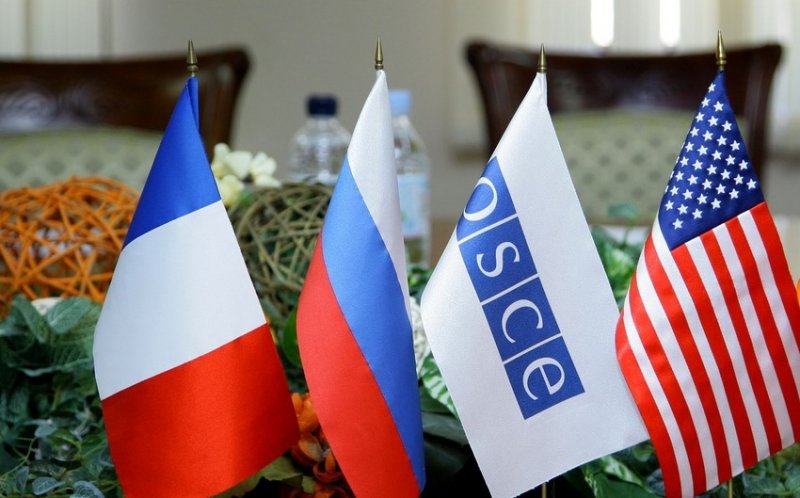The End of the Minsk Group: A New Diplomatic Map of the Caucasus

The OSCE Ministerial Council has officially decided to terminate the activities of the Minsk Group and related structures, which previously dealt with the settlement of the Nagorno-Karabakh conflict. This was announced on September 1 by the Ministry of Foreign Affairs of Azerbaijan.
The official representative of the Russian Ministry of Foreign Affairs, Maria Zakharova, stated that the dissolution of the Minsk Group is an “objective and justified step”. According to her, in recent years there have been “radical changes in regional realities”, making it impossible to continue the previous negotiation format.
Moscow emphasizes that the group’s main task – to facilitate the peaceful settlement of the Armenian-Azerbaijani conflict over Karabakh – lost relevance after the signing of the peace declaration in August 2025. The Azerbaijani MFA also welcomed the decision, noting that the Minsk process “no longer corresponded to modern realities and could no longer serve as a tool for settlement”.
The OSCE Minsk Group, established in 1992, remained for decades the main international negotiation format on Nagorno-Karabakh. Its co-chairs were Russia, the United States, and France. However, after the 2020 war and especially following the events of 2023-2025, its effectiveness was increasingly questioned.
The dissolution of the structure symbolizes the end of nearly 30 years of international mediation. Now, the focus shifts to bilateral and regional mechanisms. Armenia and Azerbaijan are building direct dialogue with the support of the EU, the US, and Turkey, while Russia and Iran insist on strengthening the “3+3” format (Azerbaijan, Armenia, Georgia + Russia, Turkey, Iran). At the same time, Western states are seeking to consolidate their presence in the region through new security and economic projects.
Analysts note that the liquidation of the Minsk Group paves the way for the emergence of new centers of influence in the South Caucasus. For Russia, this is an opportunity to emphasize that “frozen conflicts” are not eternal and can be resolved through force and political agreements, while for Azerbaijan it marks the final consolidation of its diplomatic victory and recognition of the new status quo.
Political expert Ruben Megrabyan observes:
“Armenia has lost an important channel of pressure on Azerbaijan. This forces Yerevan either to accelerate integration with the West or to seek new regional alliances to compensate for the diplomatic vacuum”.
For Armenia, the dissolution of the Minsk Group has become a painful signal. Yerevan traditionally viewed this platform as a way to draw the international community’s attention to the rights of Armenians from Nagorno-Karabakh. Now, according to experts, Armenia finds itself in a situation where its ability to rely on old diplomatic mechanisms has been reduced to a minimum.
Caucasus expert Thomas de Waal believes:
“The dissolution of the Minsk Group is a symbolic end of an old diplomatic era. Now the fate of the region will be decided not in Vienna or New York, but in Baku, Yerevan, Moscow, and Brussels”.
Thus, the dissolution of the Minsk Group has definitively marked the end of the old system of international mediation in the Caucasus, paving the way for the emergence of new regional and global formats of influence. In addition, the continuation of direct Armenia-Azerbaijan dialogue becomes inevitable.
Expert Group CCBS
 Latest news
Latest news Latest news
Latest newsGreece Plans to Exclude Turkiye from Future Defense Contracts
20.Feb.2026
U.S.-Based Mars Launches Major Investment Project in Kazakhstan
20.Feb.2026
Parliamentary Elections 2026 in Armenia as a Geopolitical Referendum
20.Feb.2026
Russia and Ukraine Fail to Reach Agreement in Geneva
19.Feb.2026
The South Caucasus in U.S. Foreign Policy: Implications of High-Level Visits for Russian and Chinese Regional Aspirations
18.Feb.2026
Ukraine Imposes Personal Sanctions on Belarusian President Alexander Lukashenko
18.Feb.2026
72% Against the Authorities: Economic Dissatisfaction Hits Record Levels in Turkiye
17.Feb.2026
Bulgaria Strengthens Defense: First American Stryker Vehicles Delivered
17.Feb.2026
Moscow Criticizes Plans to Build a U.S.-Backed Nuclear Power Plant in Armenia
16.Feb.2026
Washington expects Tbilisi to strengthen ties amid regional changes
15.Feb.2026

 28 Feb 2026
28 Feb 2026









